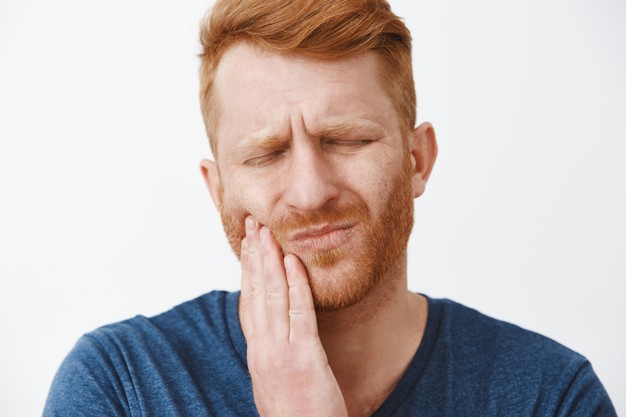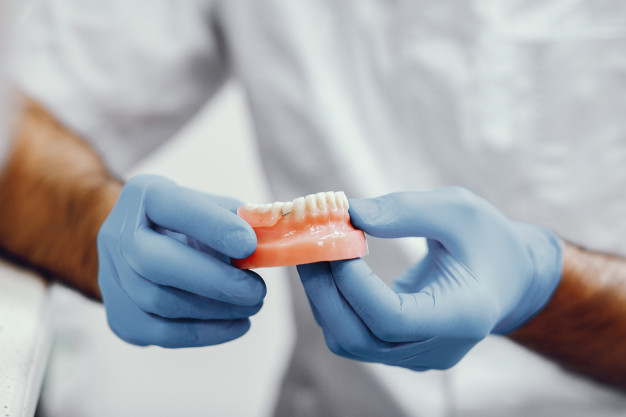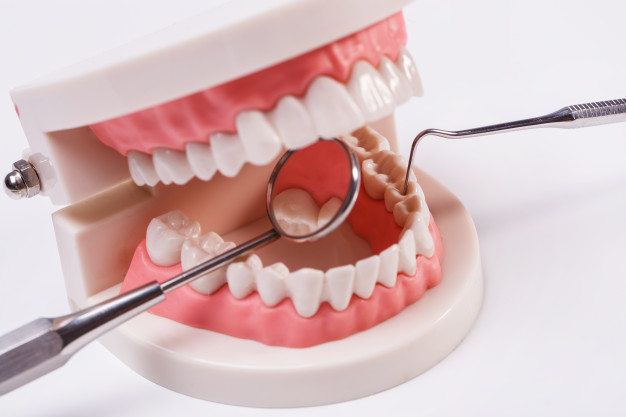Kapanlagi.com - Sensitive teeth often become a complaint that many people frequently experience. This condition is usually experienced when consuming sweet, cold, or hot foods. Causes of sensitive teeth that often occur can be caused by various triggering factors. If you experience severe tooth sensitivity, it is advisable not to ignore this condition to prevent further risk levels.
Tooth sensitivity is a complaint in dental and oral health that causes discomfort, pain, and sometimes even pain. This occurs due to sensitive teeth caused by several possible problems. For example, cavities, gum problems, or tooth damage. The sensitivity can occur at mild to severe levels.
The sensitivity sometimes arises suddenly without clear causes. If you experience this, it may be a sign of problems in dental and oral health. At a more serious or severe level, this condition should not be ignored to prevent more serious dental health problems. The cause of toothache itself should be understood as early as possible to know the appropriate treatment.
So what are the causes of toothache?
If you experience toothache, it can be caused by several triggering factors. The causes of toothache can be found through the following reviews. Here are the common causes of toothache that have been summarized by kapanlagi.com from various sources.
1. Cold or Hot Food

(credit: freepik.com)
The first cause of sensitive teeth can occur due to the consumption of cold or hot food. According to liputan6.com, cold food has the potential to cause sensitive teeth, especially if you have sensitive teeth. This happens because cold or hot food and drinks can cause a tingling sensation in the teeth due to extreme temperature changes.
This condition can affect damaged tooth enamel and attack the tooth nerves. As a result, uncontrollable tingling sensations can be experienced due to the consumption of cold or hot food.
2. Gum Infection

(credit: freepik.com)
The next cause of sensitive teeth can be experienced due to gum infection. As is known, the gums are part of the teeth and mouth that serve to protect the jawbone and tooth roots. Gums can experience a number of problems, one of which is infection caused by certain bacteria that cause tingling and pain.
When the gums have problems, this condition is often called gingivitis, which causes swollen and tingling gums. Especially if certain foods are consumed, the tingling sensation can cause discomfort.
3. Frequent Consumption of Soda
Soda is known to trigger erosion on the outer layer of teeth. If the habit of consuming soda continues, it is possible for teeth to become more sensitive and easily feel pain. In fact, tooth decay is at risk of occurring due to erosion caused by soda.
Furthermore, soda also contains sweeteners that can potentially trigger tooth decay. Therefore, limiting the consumption of soda to a certain amount can be done to prevent further pain.
4. Tooth Damage

(credit: freepik.com)
Tooth sensitivity can also be caused by tooth damage. Tooth damage can make teeth more sensitive and easily feel pain or discomfort. This includes tooth decay, broken teeth, or cracked teeth. When you experience tooth damage, it will cause pain when consuming hot, cold, and sweet foods or drinks.
Other symptoms may also arise, such as sudden pain without clear cause, changes in tooth color, and toothache. Consultation and examination are necessary to help address the tooth damage experienced.
5. Plaque Buildup

(credit: freepik.com)
Plaque buildup caused by leftover food on the teeth can also be a cause of tooth sensitivity. Plaque usually accumulates along the gum line and teeth. Excessive plaque buildup can lead to tooth damage, triggering sensitivity. Additionally, plaque on the teeth and gums can also cause various problems such as cavities, tartar buildup, or increased tooth sensitivity. Therefore, maintaining dental hygiene can help prevent plaque buildup.
6. Damaged Tooth Filling

(credit: freepik.com)
Tooth fillings are usually done to address cavities. However, if a tooth filling becomes damaged, it can cause tooth sensitivity and pain due to the exposed filling. Especially when consuming certain foods, a damaged tooth filling can cause sensitivity and tooth pain. Not only when consuming food or drinks, tooth sensitivity due to a damaged filling can also occur due to exposure to cold air or friction. If this condition occurs, you can contact a dentist to repair the damaged filling.
7. Brushing Teeth Too Hard
Maintaining dental hygiene is indeed important for maintaining dental and oral health. One way to maintain dental hygiene is by regularly brushing your teeth. However, improper brushing technique can actually trigger tooth sensitivity and pain.
According to liputan6.com, brushing teeth too hard can risk causing teeth to become more sensitive. This is because it can damage the protective layer of the teeth, which eventually triggers tooth sensitivity and pain. Especially when consuming certain foods, the teeth will feel uncontrollable sensitivity.
8. Experiencing Tooth Abscess

(credit: freepik.com)
Another cause of tooth sensitivity can also occur due to tooth abscess. Tooth abscess causes the teeth and gums to become infected due to bacteria. This infection can cause swelling in the gums, which sometimes contains pus in the abscess area. According to health.com, tooth abscess can occur along the gum line, which contains leftover food that undergoes decay. This decaying leftover food becomes the best place for bacteria to multiply. This condition can cause sensitivity and sometimes pain in the gums and teeth.
9. Sensitive Teeth
Sensitive teeth can be said as a trigger for frequent tooth sensitivity. Sensitive teeth can be caused by several conditions including tooth enamel erosion due to certain activities such as cavities, excessive plaque buildup, tooth abscess, tooth injury, or almost all dental and oral problems can trigger sensitive teeth. This can cause a tingling and painful sensation when consuming certain foods or drinks. Because sensitive teeth generally affect dentin, the middle layer of the tooth that contains nerves and hollow tubes.
10. How to Overcome Tooth Sensitivity

(credit: freepik.com)
After knowing some causes of tooth sensitivity, it is also important to know how to overcome tooth sensitivity to prevent further risk levels. The following are ways to overcome tooth sensitivity that you can learn through the points below:
- Consume pain relievers with doctor's instructions.
- Avoid consuming hot and then cold foods that cause extreme temperature changes.
- Use special toothpaste for sensitive teeth.
- Avoid brushing your teeth too hard or forcefully.
- Apply natural remedies such as clove oil to the tingling tooth if it is caused by sinus blockage.
Those are 9 common causes of tooth sensitivity, do not ignore them. Consultation and examination are necessary to overcome tooth sensitivity and prevent further risk levels.
(kpl/nlw)
Disclaimer: This translation from Bahasa Indonesia to English has been generated by Artificial Intelligence.



















